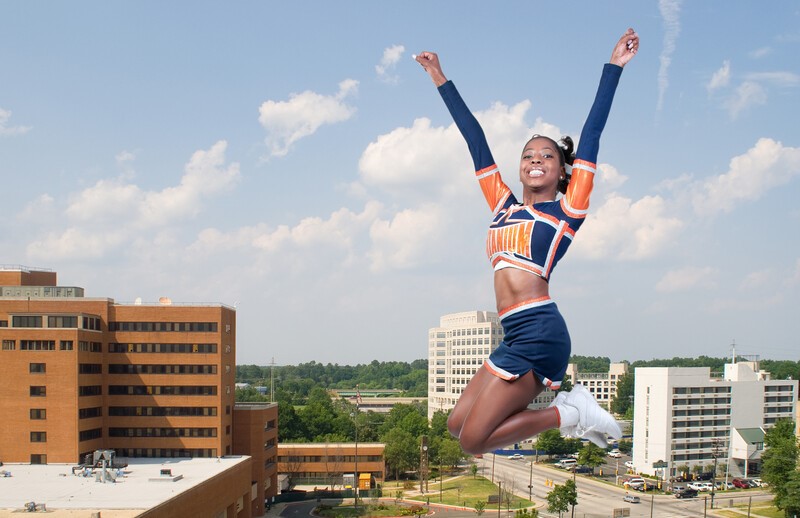This week I would like to share a story with you that I know to be true. Why do I say that? I heard it myself.

Cheerleading Coach
A part-time 24-year-old cheerleading coach of a middle school was briefing the parents of the squad. She explained new guidelines for team practices due to the restrictions imposed by Covid.
She mentioned she would try to hold in-person practices, but would be watchful of parent comfort level with this plan. If the majority did not approve, the training sessions would be held via Zoom.
This young lady began to explain her excellent qualifications, including NCAA cheerleader for a major university, and a host of qualifying cheerleading tournaments she had attended.
At one point in the conversation, she explained, “I have to tell you … I’m good at what I do!”
Being Good and Confident
When I first heard this statement, it was hard to quantify it. I suppose that she is indeed an excellent cheerleader. After all, she was selected as the team captain of her NCAA cheerleading squad.
Since I officiated Div. 1 men’s basketball for 25 years, I know firsthand how tough it is to qualify for a team at that level. Similarly, it seemed obvious that qualifying for a major college cheerleading position would also be super-competitive.
Clearly, she has the experience, but I wondered how we would really know if she was indeed good at what she does. Because of the pandemic, the cheerleading team will have limited opportunities to perform. From what we heard, the football and basketball seasons are unsure of what the year will hold.
How would we really know if she is good?
Does it Really Matter?
A couple days later, my wife and I discussed the topic during dinner. It’s great she has this high-level of confidence, but does she really need to state that she is good at what she does.
Let’s say, for example, she makes a mistake of some sort that only people in the cheerleading world would recognize.
How would I know it was a blunder? What would this mistake look like? Is it a technique that went awry? Is it a routine that was poorly planned? Should the blame be placed on the teenage cheerleaders for failing to grasp the skills?
At this point in the thinking process, I realized that the answers to these questions do not matter. In other words, there’s a bigger message here, and it’s best that I focus on what is most important and not on my interpretation of it.
She’s Good!
I imagined this cheerleading coach walking into an interview where I am part of the hiring panel, and at some point during the discussion, she says something like this:
“I know you have other candidates you are interviewing, but I wanted to let you know that I can help your company reach the goals we discussed during this interview process. I’m good at what I do, and I will bring that high energy and commitment to this position.”
Yeah … she’s good and confident … and my vote is to hire her!
